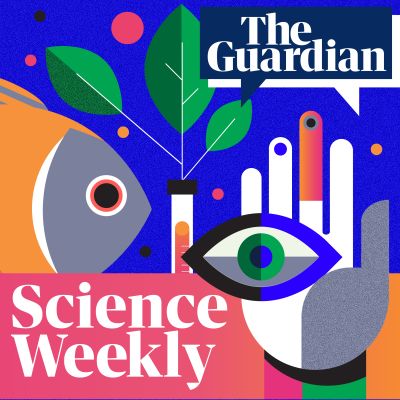Twice a week, the Guardian brings you the latest science and environment news
https://www.theguardian.com/science/series/science
Gesamtlänge aller Episoden: 12 days 13 hours 10 minutes
Nitazenes and xylazine: what’s behind the rise of dangerous synthetic drugs?
Social affairs correspondent Robert Booth tells Madeleine Finlay why a class of synthetic opioids called nitazenes, first developed in the 1950s, is leading to a worrying number of fatal overdoses in the UK. And she hears from toxicology and addiction specialist Dr Joseph D’Orazio about a tranquilliser called xylazine that has been showing up in alarming volumes in the US illegal drug supply and is now starting to appear in toxicology reports in the UK
What apes can tell us about the origins of teasing
Ian Sample talks to prof Erica Cartmill about her work on apes and teasing and asks, given how annoying teasing is, why do apes, and humans, do it?
Retinol, acids and serums: why are children obsessed with anti-ageing products?
Dermatologists warn children as young as eight years old are using potentially damaging anti-ageing skin care products. Madeleine Finlay discusses this trend, and alternative skincare, with Dr Emma Wedgeworth
Why are we still waiting for a male contraceptive pill?
Ian Sample speaks to bioethicist Prof Lisa Campo-Engelstein of the University of Texas and Prof Chris Barratt from the University of Dundee to find out why male contraceptives have been so difficult to develop, and what kind of options are in the pipeline
What happens now bird flu has reached the Antarctic?
The Guardian’s biodiversity reporter, Phoebe Weston, tells Ian Sample why the spread of bird flu through the Antarctic’s penguin colonies would be so catastrophic
A fasting prime minister and a mind-reading billionaire: the week in science
Ian Sample and science correspondent Hannah Devlin discuss the big science stories of the week – from news that Elon Musk’s Neuralink has implanted its first chip into a human, to research suggesting Alzheimer’s can pass between humans in rare medical accidents, and the revelation that Rishi Sunak begins each week with a 36-hour fast
Secrets of the microbiome: the skin
Ian Sample meets professor in cutaneous biology Julie Thornton who tells him how it helps with everything from wound healing to immunity
Secrets of the microbiome: the vagina
Madeleine Finlay meets Ina Schuppe Koistinen, associate professor at the Karolinska Institutet in Stockholm, and author of the book Vulva: Facts, Myths and Life-Changing Insights. Ina explains what makes the vaginal microbiome special, why it could hold the key to understanding pregnancy complications, and how we can better care for and protect it
Secrets of the microbiome: the gut
Ian Sample speaks to colorectal surgeon and researcher, James Kinross, about the miraculous world of our gut microbiome, and what we can all do to look after it
How to stop doomscrolling and reclaim your brain
The author Catherine Price tells Madeleine Finlay how her own excessive phone use inspired her to investigate the science behind our relationships with our devices, and what we know about how to break the cycle. And Prof Barbara Sahakian of Cambridge University explains why many of us are drawn to looking at bad news on our phones, and what it’s doing to us
